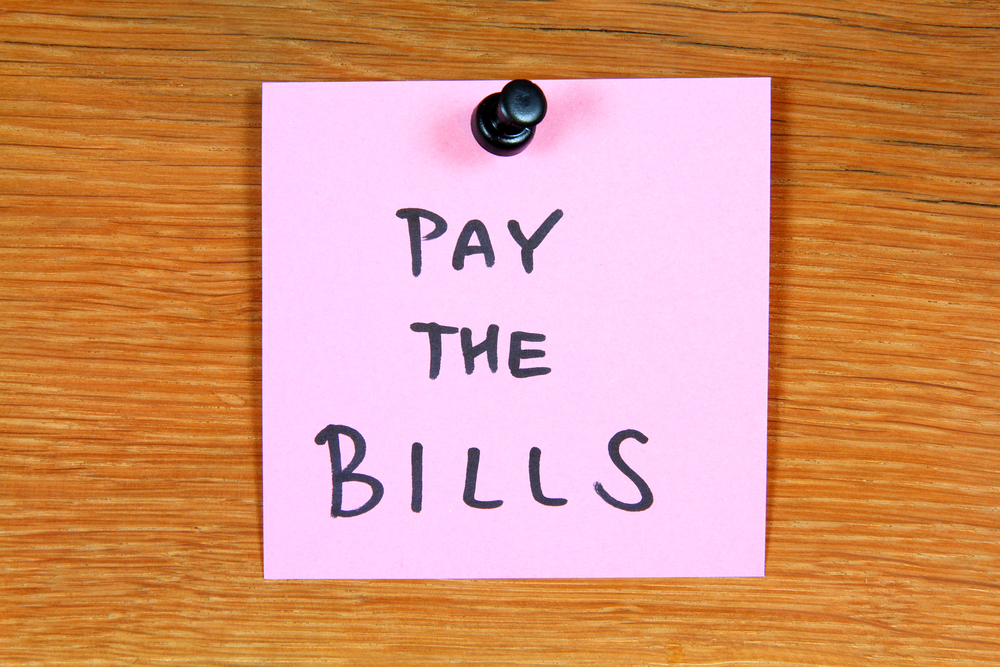Household Bills
Four ways to fight back against the dreaded April bill hikes

Brits have become accustomed to seeing their bills rise in April. But you don’t just have to take it. Here are four ways to fight back and help cut your costs.
Everything from mobile and broadband, to council tax and energy is set to rise this April.
Reena Sewraz, Which? Money expert, said rising utility and tax bills this April are a cause for real concern for millions of households across the country, especially when many are already feeling cost-of-living pressures.
Sewraz added: “If you are worried about affording your bills, there are things you can do to cut costs. You could make savings by haggling, changing the way you make payments or checking if you’re eligible for discounts based on your circumstances.
“If you are struggling to pay your bills, contact your provider or local council to see what they can do to support you.”
Below, the consumer champion lists the bill hikes you can expect, and tips to help cut your costs:
1) Energy
The Government’s Energy Price Guarantee (EPG), which currently caps most households’ energy unit rates, is set to increase by around 20% on 1 April 2023 – although it is anticipated that the Government might still prevent this price increase going ahead.
Regardless of what happens with the EPG, the £400 energy discount for electricity customers that has been paid in monthly instalments since October will end this month, so all energy customers will find themselves paying an additional £67 a month from April.
If you are struggling to pay your energy bills – or are worried about keeping up with payments – get in touch with your energy supplier to find out what it can do to help. Options could include changing the way you pay, or your provider may offer you access to their hardship funds. You may also be able to speak to Citizens Advice for direct support.
2) Broadband and mobile
Many telecoms companies, including BT, EE, Plusnet, Shell Energy Broadband, TalkTalk, Three and Vodafone increase their prices every spring, using the Consumer Prices Index (CPI) rate of inflation as a basis. However, as inflation has reached its highest rate in decades, customers this year face increases of at least 14%.
O2 and Virgin Mobile base their price rises around the higher Retail Prices Index (RPI), meaning some customers will face hikes of more than 17% this year.
Customers who are out of contract do not have to accept any price rise – they are free to shop around to find a better deal. In most cases, shopping around and switching providers will save money – sometimes hundreds of pounds, and you may get a better service, but check the T&Cs of any new contract carefully to be aware of the prospective provider’s policy on future price rises.
Haggling also remains a good way to save if you’d rather stick with the same provider when your contract ends. In January, Which? found that customers who took the time to haggle with their broadband and TV provider saved an average of £90 a year.
Customers within the minimum term of their contract who are concerned about being able to pay a higher price should get in touch with their provider for support.
Social tariffs are special discounted deals that are available for certain low-income customers, and those who are eligible should be allowed to switch to one, even if it means changing provider. If you are not eligible for a social tariff, Ofcom has made it clear that broadband providers should do all they can to keep people connected.
3) Water bills
Water bills are set to rise by around 7.5% from April in England and Wales – or 5% in Scotland. Individual bills could be higher or lower depending on factors such as location, usage, and whether you have a water meter.
There are several key ways you can reduce your water bill. Firstly, try reducing your time in the shower to five minutes. Doing this could save around £50 a year.
Fixing water leaks is another way to save. Wasted water can add up, and even a slow-dripping shower head can make an impact on your bills if it is not sorted. Keep shower heads clean, as limescale can clog up a shower head, meaning the flow will not be as strong and you’re much more likely to need more water to shower with.
4) Council tax
This year, councils can raise bills by up to 5% without needing to call a local referendum. There isn’t a fixed percentage rise across the country, and each local council can choose how much it’ll raise its rates, but on average, prices could rise by £75.
While there aren’t many ways to reduce your council tax bill, you might qualify for a reduction depending on personal circumstances. People who live alone, or who live with others who are exempt, can claim a 25% discount.
Other discounts and reductions may be available on empty properties, for instance, as well as second and holiday homes. These discounts are not applied automatically and may vary depending on the local authority, so if you think you fit the bill, you will need to write to the council and make your case.
If you are unable to pay your bill, it is important to contact your local council immediately. There are several ways it may be able to help, including rescheduling payments, reducing payments if you’re on a low income or claiming benefits, and offering ‘hardship relief’.